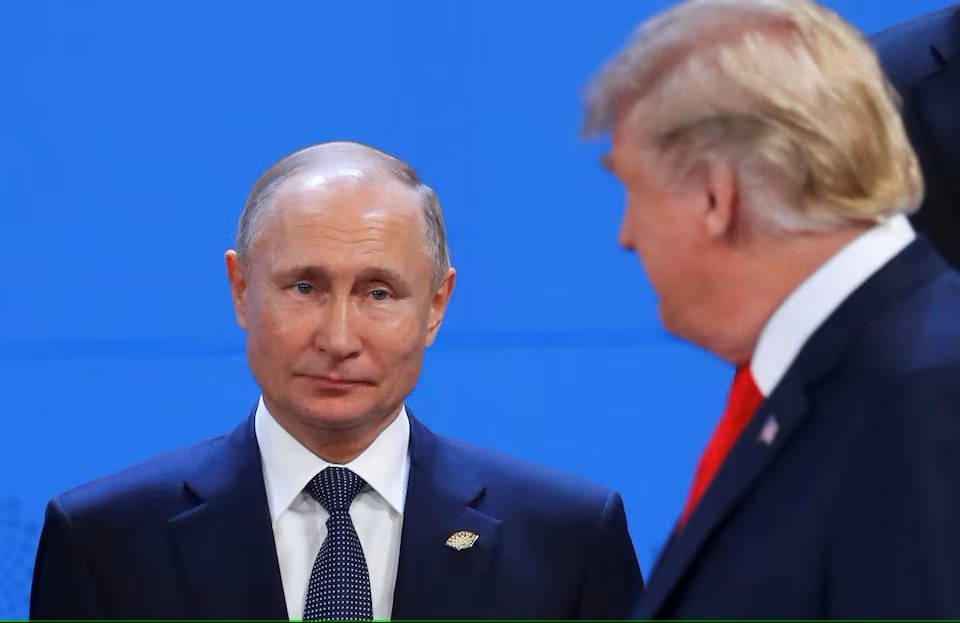Trump - Putin phone call: New efforts for peace in Ukraine under European pressure
US President Donald Trump is expected to have a phone call with Russian President Vladimir Putin today, May 19 (local time) to discuss peace in Ukraine.

The move comes as European leaders demand the Kremlin accept an immediate ceasefire to end the region's deadliest conflict since World War II.
The Ukraine conflict began in February 2022, sparking the most serious confrontation between Russia and the West since the Cuban Missile Crisis in 1962.
President Trump, who has repeatedly expressed his desire to be remembered as a peacemaker, has repeatedly called for an end to the “bloodshed” in Ukraine.
Under pressure from Mr Trump, delegations from the countries involved in the conflict met in Istanbul, Türkiye, last week, marking their first meeting since March 2022. The meeting came after President Putin proposed direct negotiations and European countries and Ukraine demanded an immediate ceasefire.
On his social networking site Truth Social, President Trump wrote: "The topic of the call will be ending the 'bloodshed' that is killing an average of over 5,000 Russian and Ukrainian soldiers each week, and trade."
"Hopefully this will be a productive day, a ceasefire will take place, and this very violent war, a war that should never have happened, will end," he said.
President Trump said he will have a phone call with President Putin at 10:00 a.m. Eastern Time (9:00 p.m. Vietnam time) on May 19.
The Kremlin has confirmed that preparations for the phone call are underway.
The Trump administration has made clear that Russia could face additional sanctions if it does not get serious about peace talks. In addition to the call with Putin, Trump said he would also speak with Ukrainian President Volodymyr Zelensky and leaders of several NATO member states.
On Russia’s side, President Putin, whose forces control about a fifth of Ukraine’s territory and continue military operations, has stuck to his terms for ending the conflict, despite public and private pressure from Mr. Trump and repeated warnings from European powers.
On May 18, Reuters reported that Russia carried out what is believed to be the largest drone attack on Ukraine since the conflict began.
Ukraine's intelligence agency also said it believed Moscow intended to fire an intercontinental ballistic missile on May 18, but there has been no confirmation from Russia.
Previously, in June 2024, President Putin announced that Ukraine must officially abandon its ambitions to join NATO and withdraw its troops from the entire territory of four Ukrainian regions that voted to join Russia.
In a related development, on May 18, British Prime Minister Keir Starmer discussed the conflict in Ukraine with the leaders of the US, Italy, France and Germany, according to a Downing Street spokesman.
After a joint phone call on May 18, French President Emmanuel Macron posted on social network X: "Tomorrow, President Putin must show that he wants peace by accepting the unconditional 30-day ceasefire proposed by President Trump and supported by Ukraine and Europe."
However, President Putin has been cautious about a ceasefire, saying fighting cannot stop until a number of key conditions are resolved or clarified.
European leaders have expressed concern that President Putin is not serious about peace, and fear that Mr. Trump and Mr. Putin could push for an imposed peace deal that would leave Ukraine essentially without a piece of territory and without strong security guarantees against potential future attacks from Russia.
Former US President Joe Biden, Western European and Ukrainian leaders have repeatedly vowed to defeat Russian forces. Moscow has denied allegations that it could one day attack NATO.
President Putin sees the conflict as a turning point in Moscow's relations with the West, which he says weakened Russia after the 1991 collapse of the Soviet Union through NATO expansion and encroachment into Moscow's sphere of influence, including Ukraine.
